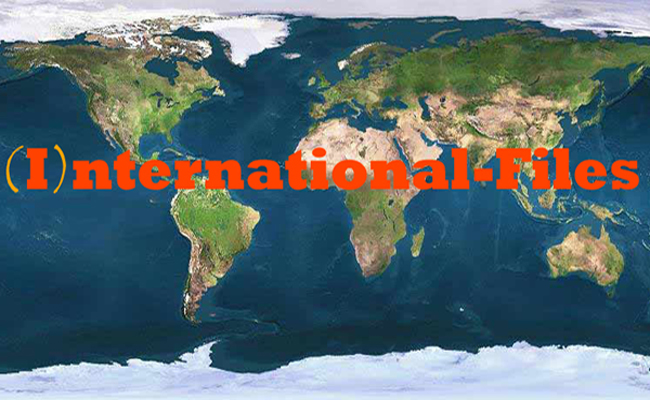The U.S. military support included warplanes and intelligence. However the White House stated that its mission was to fight al-Qaeda's presence in Yemen.
The attacks occurred last Thursday November 17, 2009 and it follows four months of continuing combats in the region, between Yemen and Saudi Arabia -U.S. strong ally- against the Houthi rebels, a religious-based group of mostly Shiite [Shia] Muslims.
The internal conflict in Yemen started in 2004 but the military conflict has restarted in August 2009, after peace talks failed. This has caused the displacement of over 175,000 civilians in the border region between both countries. A humanitarian crisis is increasing in the region, with children being the most affected.
Videos released by the rebels show the violent attacks.
The Obama administration has said the U.S. responded to requests from the government of Yemen. The U.S. says they are fighting against al-Qaeda, as the pro Israel newspaper The New York Times reports:
[U.S.] support was approved by president Obama and came at the request of the Yemeni government. The American contributions were intended to help Yemen to prevent Al Qaeda from mounting attacks against American and other foreign targets inside its borders.
While most U.S. media ignored the attack for two days, the Iran government's international news website Press TV posted this last Saturday November 19:
Upon the orders of Obama, the military warplanes on Thursday blanketed two camps in the North of the Yemeni capital, Sana'a, claiming there were "an imminent attack against a US asset was being planned," ABC News quoted anonymous administration officials as saying on Friday.
The US air raids were then followed by a Yemeni ground forces attack. The operation led to the death of around 120 people of whom many were civilians, including children, the report quoted Yemeni opposition as saying.

Obama also contacted Yemen's President, Ali Abdullah Saleh, after the blitz in order to "congratulate" him on his efforts against 'al-Qaeda,' the US news outlet quoted White House officials as telling reporters earlier.
The latest development comes in the wake of recently intensified attacks on the country's Shia Houthi fighters which has brought about a dire humanitarian situation in northern Yemen.
So far, the US officials have categorically denied any direct involvement in the air strikes on Houthi fighters, alleging they have only targeted growing al-Qaeda training camps, mostly located in southern parts of the Persian Gulf state. Yemen's Houthi fighters however insist US fighter jets have been bombing their region, claiming the lives of civilians in their air raids.
To understand the Yemen conflict, we also must understand of the centuries old Sunni-Shiite rivalry which is wisely used by the U.S., Europe, and especially Israel to maintain and increase its influence in the Middle East region.
Yemen population of 23 million people with an average age of 16 years old, is mostly of Arab origin, about 50-55% are Shaf'i Sunni Muslim religion and 40-45% are Zaydi Shiite [Shia] Muslims, but the country is ruled by the Shiite mostly with close ties to Iran, a Shiite majority country. Yemen is located in the southern tip of the Arabian peninsula and it borders with mostly-Sunni Oman and Saudi Arabia.
Yemen, says it's fighting the al-Qaeda influence in its territory. Al-Qaeda is a Sunni pan-Islamic movement that rejects Jewish-Christian influence in the Muslim countries, and it took credit for the 9/11 attacks in the United States. About 40% of the Guantanamo detainees are from Yemen, and the U.S. embassy in Sanaa has been a target of violent attacks.

Yemen is ruled by president Ali Abdullah Saleh, is a Shia leader who has helped with the unification of the country in the 1960s' after the British colonial rule led to a division of the country. Salh is in power for the last 30 years, and he has accused Shia-ruled Iran of supporting the Houthi rebels.
North Yemen -historically pro western- is dominated by the Shiites, and the southern Yemen is mostly Sunni with a strong Marxist influence remaining from the previous government, which united with the north in 1990.
Yemen military offensive is also being supported by the Sunni-majority Saudi Arabia, whose military latest attack in northern Yemen killed about 54 people, according to Al Jazeera. In that attack, the leader of the Houthis was reportedly killed reports the BBC:
The Houthis, named after their leader's family, say the Saudis are helping the Yemeni government suppress their demand for greater local autonomy. The Houthis say they are trying to reverse the political, economic and religious marginalisation of the Zaydi [Shiite] community in Yemen.
The Zaydi community are a minority in Yemen, but make up the majority in the north of the country. The insurgents have been fighting the government since 2004. The government launched a fresh offensive in August 2009, which precipitated a new wave of intense fighting. It accuses the Houthis of wanting to re-establish Zaydi clerical rule, which ended in 1962.
The United States military is using al-Qaeda as a excuse to support Yemen in this war, but mostly is obvious that it wants to increase its military presence in the Middle East. Pentagon officials declared to the UK's The Daily Telegraph newspaper:
American officials told The Daily Telegraph the country is becoming a "reserve" base for the terrorist network, which considers it a safe haven. "Yemen is becoming a reserve base for al-Qaeda's activities in Pakistan and Afghanistan," said a US military official. [...]
Yemen is the ancestral home of Osama Bin Laden and al-Qaeda in the Arabian Peninsula, the local arm of the network, has provided many of the group's leaders. One of al-Qaeda's worst attacks on [the U.S.], the bombing of the USS Cole, took place in Aden in 2000, killing 17 [U.S.] sailors.
In the other extreme, The Jawa Report, a U.S. based anti-Muslim and conservative news blog -that calls Arabs as "Jawas" I suppose in reference to Indonesia the most populated Muslim nation in the world- is even criticizing the attacks, perhaps in order to attack Obama:
When a counter-terror air strike kills more civilians than an average suicide bombing, can it be called a success? Discounting the dead kids for just a minute and using even t

he coldest pragmatic standards, the US air strikes in Yemen did much more harm than good to the US on multiple levels and will negatively impact security for a decade.
The Atlantic Wire a well known pro Israel publication founded in 1857 in Boston and now based in Washington, DC, says that Yemen could become "the Next Afghanistan". In other words, another excuse for a U.S. military intervention overseas:
How worried should we be about Yemen? The small Arab state sits south of prosperous Saudia Arabia and just across the Gulf of Aden from Somalia, the world's most failed state. Long plagued by separatist insurgencies and terrorism, many analysts fear that Yemen is on the edge of becoming an international crisis point on the scale of Afghanistan.
Yemenis make up 40% of the detainees held at Guantanamo Bay. Yemen, along with Somalia and of course Afghanistan, is frequently cited as a safe haven for terrorism. Because al-Qaeda is a predominantly Arab organization, and Yemen is an Arab state unlike Somalia or Afghanistan, some fear it could be more susceptible to al-Qaeda infiltration. Yemen's dilapidated economy, expected to decline over the next year and disintegrate as oil runs out by 2017, could plunge the nation into chaos.
The U.S. is already engaging Yemen's problems, if lightly. On Thursday, a series of bombings hit suspected terrorist sites in Yemen, with apparent American support. The extent of U.S. involvement remains unclear, however, with news reporting ranging from mere intelligence assistance to Yemeni officials to launching cruise missiles against the targets.
One day after the U.S. attacks in Yemen, the pro Israel newspaper The Washington Post announced that the Obama administration is planning to repatriate dozens of Yemeni prisoners from Guantanamo, but the current crisis in Yemen may delay the plans:
The Obama administration is planning to repatriate six Yemenis held at the U.S. military prison at Guantanamo Bay, Cuba, a transfer that could be a prelude to the release of dozens more detainees to Yemen, according to sources with independent knowledge of the matter.
The release is a significant first step toward dealing with the largest group of detainees at the prison -- there are currently 97 Yemenis there -- and toward meeting President Obama's goal of closing the facility.
But Yemen's security problems and lack of resources have spawned fears about its ability to monitor and rehabilitate returnees.
That same day, the U.S. Senate approved the scandalous 2010 Defense Budget of $636 billion dollars, including $128 billion for the wars in Iraq and Afghanistan. This represents an increase of $11 billion from the 2009 budget. The budget was passed in the Senate by a wow 88-10 majority vote, three days after the House approved it with a whooping 395-34 vote.
The U.S. 2010 Budget for Health Care is about $821.7 billion, but a big chuck of it goes to the same Insurance corporations that boycotted the U.S. Health Care reform bill, that now excludes Public Option. In times of recession, U.S. citizens health will continue under the control of private corporations.
With a poverty rate of 46% and growing, Yemen has an external debts of $6 billion dollars and the nation is now facing a worsening humanitarian crisis, with over 175 thousands people being displaced from their homes by the current civil war. The most affected are children, with half of them showing signs of chronic nutrition deprivation.
(
Carlos in DC)
----------------------------------------------------------------------------------
It now appears that air travelers from all across the world are going to be facing tougher security measures and delays. This news comes after a suspected al-Qaeda terrorist came within moments of blowing up a transatlantic jet that was carrying 254 people on board.
The President of the United States, Barack Obama, came back from Christmas holiday to order two anti terrorism reviews as aviation leaders attempt to close loopholes that failed to stop Umar Farouk Abdulmutallab. This is a man that is a Nigerian extremist that smuggled explosive materials onto a Northwest Airlines Flight 253 from Amsterdam to Detroit on Christmas Day.
This attack came just four days after a video was posted on an extremist website that showed an al-Qaeda militant in Yemen saying that they are carrying a bomb to hit the ene

mies of God. Abdulmutallab, a former student of Britain, was restrained by passengers and crew as he attempted to detonate a bomb that was sewn into his underpants.
As the man emerged from the toilet, he put a blanket over his lap and complained about an upset stomach. It was during this time that he tried to operate the bomb. However, passengers and cabin crew restrained him as flames came from his clothing.
Flights are now being delayed as much as four hours as passengers have to face extra screenings and are limited to one item of hand luggage. Under this new measure, in the final hours before landing in the United States, passengers are now banned from standing up, using toilets and holding blankets.
(
Comparecarrentals.co.uk)
 The two largest nuclear powers say they are close to agreeing on a successor to the 1991 Strategic Arms Reduction Treaty (START I), although U.S. President Barack Obama and Russian President Dmitry Medvedev have yet to clinch a deal.
The two largest nuclear powers say they are close to agreeing on a successor to the 1991 Strategic Arms Reduction Treaty (START I), although U.S. President Barack Obama and Russian President Dmitry Medvedev have yet to clinch a deal. Russia's leaders have remained wary about Obama's revised missile defense plans, which are based on sea- and land-based missile interceptors in Europe.
Russia's leaders have remained wary about Obama's revised missile defense plans, which are based on sea- and land-based missile interceptors in Europe.



























